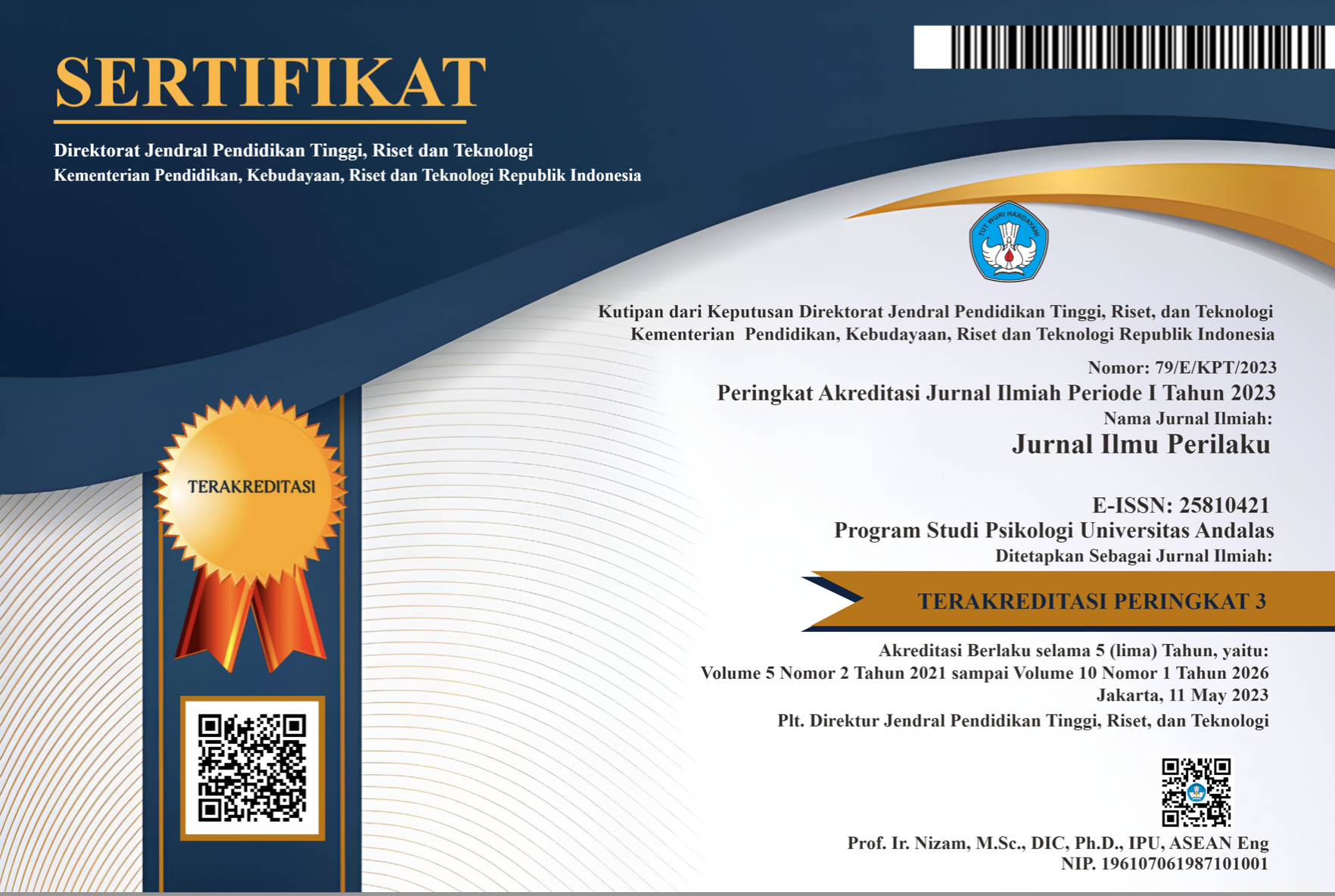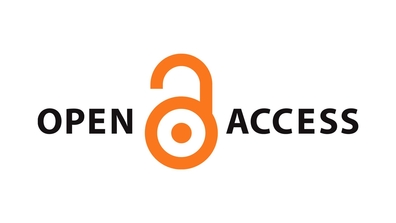Developing Communication Book for Schizophrenia in Aceh: Prospects and Challenges
Abstract
he lack of media information about Schizophrenia in Aceh explains caregivers’ limited understanding of mental disorders. Research on patient discharge systems found that communication media about Schizophrenia were still limited, mostly in the form of posters, flyers, or booklets. There was no specific information about the mental illness needed by the family or caregivers after the patient's discharged from the hospital. This study aims to develop and test a communication medium that can support the recovery process of post-discharge patients from the Mental Health Hospital or Rumah Sakit Jiwa (RSJ) in Aceh. This action research was carried out through focus group discussions (FGDs), interviews, and surveys to health practitioners (mental health nurses, psychiatrists, psychologists, community leaders) and family or caregivers of Patients with Schizophrenia (PWS). The study found that messages about Schizophrenia which are developed through a community-based approach are likely to be better accepted than the expert-led information.
Downloads
References
Chatterjee, S., Patel, V., Chatterjee, A., & Weiss, H. A. (2003). Evaluation of a community-based rehabilitation model for chronic schizophrenia in rural India. The British Journal of Psychiatry, 182(1), 57-62.
Darmastuti, R., Edi, S. W. M., & Christianto, E. (2018). Model Literasi Media Untuk Anak-Anak Sekolah Dasar Dengan Menggunakan Multimedia Interaktif Berbasis Kearifan Lokal Masyarakat Salatiga. Jurnal ASPIKOM, 3(4), 635-649.
Darmastuti, R., Bajari, A., Martodirdjo, H. S., & Maryani, E. (2016). Gethok Tular, Pola Komunikasi Gerakan Sosial Berbasis Kearifan Lokal Masyarakat Samin di Sukolilo. Jurnal Aspikom, 3(1), 104-118.
Irmansyah, I., Prasetyo, Y. A., & Minas, H. (2009). Human rights of persons with mental illness in Indonesia: more than legislation is needed. International journal of mental health systems, 3(1), 14.
Good, B. J., Marchira, C. R., Subandi, M. A., Mediola, F., Tyas, T. H., & Good, M. J. D. (2019). Early psychosis in Indonesia: reflections on illness and treatment. International Review of Psychiatry, 31(5-6), 510-522.
Hastuti, T. Setyowati, H. N., & Rosemary, R. (2020). Rumah Gizi ‘Aisyiyah: Komunikasi Kesehatan dengan Pendekatan Agama-Budaya. Jurnal Komunikasi Global, 9(1), 141-161.
Kemenkes, R. I. (2018). Hasil Utama Riset Kesehatan Dasar Tahun 2018. Kementrian Kesehatan Republik Indonesia, 1-100.
Lewis, B., & Lewis, J. (2014). Health communication: a media and cultural studies approach. Macmillan International Higher Education.
Mawarpury, M., Sulistyani, A., Karjuniwati., Sari, H., Rachmalia, Direzkia, Y., & Pamungkas, S. R. (2014). Discharging mental health patients in Aceh: A preliminary study. Anima Indonesian Psychological Journal, 29, 95-102.
Muhlisin, A., & Pratiwi, A. (2017). Community-based participatory research to improve primary mental health services. International Journal of Research in Medical Sciences, 5(6), 2524-2528.
Nurbaya, N., & Caninsti, R. (2014). Pengaruh promosi kesehatan fear arousing warning terhadap intensi mengonsumsi fried chicken pada siswa SD usia 9-11 tahun. Jurnal Psikogenesis, 2, 152-166.
Puspitosari, W. A., Wardaningsih, S., & Nanwani, S. (2019). Improving the quality of life of people with schizophrenia through community-based rehabilitation in Yogyakarta Province, Indonesia: A quasi experimental study. Asian journal of psychiatry, 42, 67-73.
Rachmatan, R., Khairani, M., Yulandari, N., Aprilia, E. D., & Rosemary, R. (2015). Identifikasi program promosi kesehatan jiwa masyarakat Aceh Besar. Prosiding Seminar Nasional Kesehatan Mental dari Perspektif Kultural.
Rahmadiana, M. (2013). Program promosi kesehatan bagi anak-anak. Jurnal Psikogenesis, 1, 116-129.
Rosemary, R. (2020). Mengulik Lemahnya Komunikasi Kesehatan Pencegahan Covid-19: Studi Kasus di Provinsi Aceh. Working Paper.
Sarafino, E. P. (1998). Health Psychology: Biopsychosocial Interactions (3rd edition). John Wiley & Sons.
Sebayang, SK, Mawarpury, M, Rosemary, R. 260 million people and less than 1000 psychiatrists, Indonesia’s mental health worker shortage. The Conversation. [accessed on 2 January 2020]. https://theconversation.com/260-million-people-and-less-than-1000-psychiatrists-indonesias-mental-health-worker-shortage-104927
Suryani, L. K., Lesmana, C. B. J., & Tiliopoulos, N. (2011). Treating the untreated: applying a community-based, culturally sensitive psychiatric intervention to confined and physically restrained mentally ill individuals in Bali, Indonesia. European archives of psychiatry and clinical neuroscience, 261(2), 140.
Susanti, H., James, K., Utomo, B., Keliat, B. A., Lovell, K., Irmansyah, I., … & Brooks, H. (2020). Exploring the potential use of patient and public involvement to strengthen Indonesian mental health care for people with psychosis: a qualitative exploration of the views of service users and carers. Health Expectations, 23(2), 377-387.

This work is licensed under a Creative Commons Attribution-NonCommercial-ShareAlike 4.0 International License.
The non-commercial use of the article is governed by the Creative Commons Attribution license as currently displayed on Creative Commons Attribution-NonCommercial-ShareAlike 4.0 International License.
JIP's spirit is to disseminate articles published are as free as possible. Under the Creative Commons license, JIP permits users to copy, distribute, display, and perform the work for non-commercial purposes only. Users will also need to attribute authors and JIP on distributing works in the journal.
Please find the rights and licenses in Jurnal Ilmu Perilaku (JIP).
- License
The non-commercial use of the article will be governed by the Creative Commons Attribution license as currently displayed on Creative Commons Attribution-NonCommercial-ShareAlike 4.0 International License.
- Author’s Warranties
The author warrants that the article is original, written by stated author(s), has not been published before, contains no unlawful statements, does not infringe the rights of others, is subject to copyright that is vested exclusively in the author and free of any third party rights, and that any necessary written permissions to quote from other sources have been obtained by the author(s).
- User Rights
JIP's spirit is to disseminate articles published are as free as possible. Under the Creative Commons license, JIP permits users to copy, distribute, display, and perform the work for non-commercial purposes only. Users will also need to attribute authors and JIP on distributing works in the journal.
- Rights of Authors
Authors retain the following rights:
- Copyright, and other proprietary rights relating to the article, such as patent rights,
- The right to use the substance of the article in future own works, including lectures and books,
- The right to reproduce the article for own purposes, provided the copies are not offered for sale,
- The right to self-archive the article.
- Co-Authorship
If the article was jointly prepared by other authors, the signatory of this form warrants that he/she has been authorized by all co-authors to sign this agreement on their behalf, and agrees to inform his/her co-authors of the terms of this agreement.
- Termination
This agreement can be terminated by the author or JIP upon two months’ notice where the other party has materially breached this agreement and failed to remedy such breach within a month of being given the terminating party’s notice requesting such breach to be remedied. No breach or violation of this agreement will cause this agreement or any license granted in it to terminate automatically or affect the definition of JIP.
- Royalties
This agreement entitles the author to no royalties or other fees. To such extent as legally permissible, the author waives his or her right to collect royalties relative to the article in respect of any use of the article by JIP or its sublicensee.
- Miscellaneous
JIP will publish the article (or have it published) in the journal if the article’s editorial process is successfully completed and JIP or its sublicensee has become obligated to have the article published. JIP may conform the article to a style of punctuation, spelling, capitalization, referencing and usage that it deems appropriate. The author acknowledges that the article may be published so that it will be publicly accessible and such access will be free of charge for the readers.










